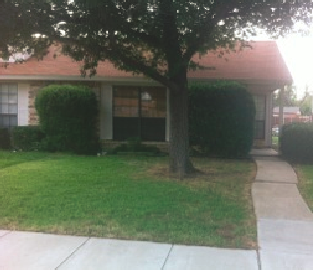 This is something I experienced in my own investing. I learned a lot when I was able to overcome my hesitancy to invest outside my neighborhood comfort zone or my immediate geographical zone.
This is something I experienced in my own investing. I learned a lot when I was able to overcome my hesitancy to invest outside my neighborhood comfort zone or my immediate geographical zone.
It is so important because you might find yourself, as a part-time investor, being stifled, slowed or discouraged by the lack of investment opportunities in your immediate market area. At the same time you might feel incredibly hesitant to venture outside your immediate market area with your real estate investments.
Therefore this frustration and hesitation might cause you to not be as successful as you could be. That is why it is so important to consider investing outside your immediate comfort zone or your immediate geographic zone.
My perspective and my comfort zone
Let me put some perspective on this from my own personal experience as a one-time part-time investor and corporate employee. This realization and learning ultimately were a part of what enabled me to transition from a part-time investor to a full-time investor and the owner of a HomeVestors franchise in Dallas.
Like many of you part-time investors out there today who have made the leap, come off the sidelines, and purchased that first investment property, I bet you purchased it to invest in an area you were very familiar with. There is probably a likelihood that area was somewhere close to where you live or work today.
There is nothing wrong with that.
It was probably an educated decision and well-informed approach. You knew the area. You were familiar with the values of the properties in the area because perhaps you had purchased your own personal home in that area. You knew the demographics of the area. You knew the people there and maybe that increased your comfort level or confidence level in who you would ultimately rent that property to – assuming that was a rental property you invested in.
Probably you just simply knew the market. You knew what was going on economically in the area. You knew what might be appreciating, you knew what businesses were coming to the area and the great schools in the area. All these things combined made it much more comfortable for you to invest in that area.
You may also have chosen to buy that first property close to your own home because you were able to keep an eye on it. You could drive by occasionally just to be sure it was properly maintained and your residents were respecting the property and caring for it in the manner you wanted.
We can get emotionally attached to houses
When you peel that back, a lot of that might be your own personal emotional attachment to that property. As homeowners, we get very emotionally attached to our personal residences – those houses we buy and call home.
They are the largest investments we are likely to make in our lifetimes and it’s hard not to get emotionally attached to them when you live in them, raise families in them and have a lot of great memories and experiences. You get emotionally attached to those properties that you live in. And a lot of times, especially with new part-time investors, you are going to find – whether you like it or not – you are going to get emotionally attached to your investment properties. And I will caution you there (more on this down lower), initially you may not be able to overcome that emotional attachment and that may drive you to purchase rental properties close to your home so you can stay close to them.
Finally, you may have chosen to purchase that first rental property and invest close to where you live or work because of the access you had to the critical resources you need to own and manage that investment property. Perhaps it was maintenance people, or a property manager or a local friend or Realtor in the area you have known for years who helped you find that property. You probably have resources you have used on different occasions to maintain your own home or a Realtor who helped you find those resources. You probably leveraged those same resources when buying or maintaining that initial investment property you purchased.
These are all great reasons to buy that first property close to home. There is nothing wrong with that. I admit I did it. I did exactly that. I did it for the exact reasons we just described – familiarity with the area, emotional attachment and desire to keep an eye on the property and the availability of critical resources I already had in place.
All those elements drove me to purchase not only my first, but several of my first rental properties, all within 15 to 20 minutes of my actual home.
What I realized over time was there was an attraction, value and reward to investing outside my immediate area. It did not come quickly or easily. I was very hesitant to venture into places and markets unknown and cities unknown. At the same time, as I became more educated as an investor, I realized many of the most successful personal real estate investors in the U.S. today are successful because they are investing outside of their immediate areas. Many of them are investing outside their home city, outside their home state and even on the complete opposite side of the country from where they live.
Here is what will enable you to step outside your immediate market
No. 1 – You will gain more confidence with time. You are going to understand real estate investing more. You will understand the types of homes and types of markets where you can be successful whether you are renting the properties or fixing them up and selling them as flips.
No. 2 – You are going to realize that the emotional attachment you have to homes will ultimately fade over time. Your desire to see, touch and watch these assets becomes less and less important. These houses are assets. You do not become emotionally attached to them. They are income-producing assets. You don’t go buy stocks because you know where the corporate headquarters is and it’s close to your home and you can drive by each day and make sure that company is still in business. There is probably a very good chance the stocks you own, or have owned, you may never have seen their corporate headquarters or used or purchased their product. That is because stocks are assets. You are not emotionally attached to them. And you will find houses should, and will, ultimately be perceived by you in the same way. Maybe not initially, but over time you will realize they are income-producing assets that do not require an emotional attachment.
No. 3 – I managed the majority of my own properties. But when they are far and remote from me, I use the talent of property managers. It all of a sudden eliminated the need I thought I had with regard to, “Hey, I don’t know who is in this market and how to rent a property in this market. I do not know a maintenance person, an electrician, a plumber, a landscaper and painter in this part of town.” What I learned is that the key role of the property manager is to know and have the access to the resources to acquire quality residents and properly maintain the property. Property management is what really unlocked my ability and my comfort to invest outside my immediate area.
You may find less competitive markets
When you do expand your horizons to invest outside of your immediate area you are going to increase your options. If you are in a competitive market like I am, there are a lot of investors. You go out beyond your immediate metropolitan market into some of the more rural suburbs or rural towns to invest and you are going to have many more houses to buy and more deals and opportunities to consider.
It is also going to be far less competitive.
And I have personally experienced this. It is easier to buy homes. Easier to find good deals. And in the context of rental property investments, I have found the rural areas are much easier to rent because the demand is greater. There are only so many rental properties available in some of these smaller towns. So you become a much needed commodity.
Many of you may find that when investing outside your metropolitan area, the homes are much more affordable, especially if you reside and currently invest in a large metropolitan area like I do in Dallas. And that is great for us investors when you find markets where you can buy assets with a much lower cost of entry. So there are lots of benefits to venturing outside your immediate area.
What you are going to find is what I learned, and this is key:
No.1 – As you develop and grow your investing business and start to expand outside your immediate area you will find personal familiarity with the market becomes less important. Knowledge will replace familiarity. You will become much more confident in an area because you have investment knowledge of it versus your personal familiarity with the area. Financial performance is what is going to become more important than familiarity.
No. 2 – Over time you are going to start to appreciate houses and recognize them as income-producing assets and not anything you would be emotionally attached to. Much like our stock example, you are going to recognize these homes are assets that produce income for you. And you will treat them like assets. And that will ultimately alleviate you from that emotional attachment many of us are trained to have to homes because that is all we have known.
No. 3 – Finally you are going to recognize the importance of your team and your property managers and those critical people you need to engage and partner with to be successful as a real estate investor.
Reach outside your comfort zone – your geographical zone – and I guarantee you will be surprised with the success you will find.



























0 Comments